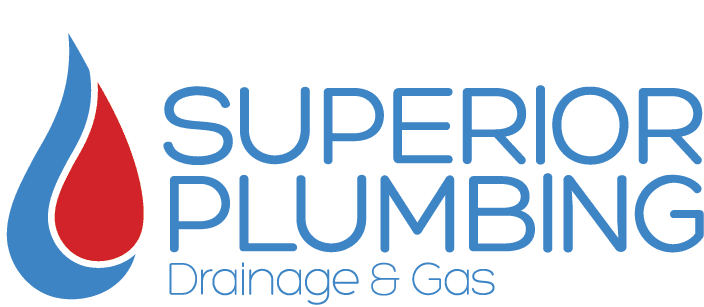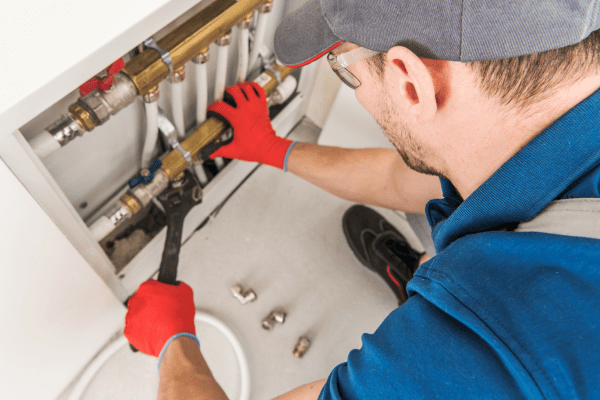Ensuring the safety of your commercial property is of utmost importance, especially when it comes to gas installations and appliances. Superior Plumbing and Gas knows safety is a critical aspect that business owners cannot afford to overlook.
Gas: Better Safe than Sorry
From restaurants to offices, gas is a commonly used energy source, and understanding the necessary precautions is vital to protect both employees and customers.
Gas safety in commercial properties is a shared responsibility between business owners, employees, and licensed professionals. By adhering to safety measures detailed in this guide, business owners in Perth can create a safe and secure environment for their workforce and customers.
Regular Gas Appliance Checks
Gas appliances are integral to the daily operations of many commercial properties in Perth, providing essential services such as heating, cooking, and hot water. To ensure the ongoing safety and efficiency of these appliances, business owners must prioritise regular gas appliance checks conducted by licensed professionals.
- Frequency of Inspections: Regular gas appliance checks are not only a best practice but are also mandated by legal requirements. Business owners should schedule annual inspections as a minimum, although more frequent checks may be necessary for specific appliances or in high-usage environments. This proactive approach helps identify and address potential issues before they escalate into serious hazards.
- Licensed Professionals: Gas appliance inspections must be carried out by licensed and qualified professionals. These professionals, often referred to as gas fitters, have the expertise to assess the condition of gas appliances, identify potential safety risks, and conduct necessary maintenance or repairs. Hiring licensed professionals ensures that the work is performed in compliance with industry standards and legal regulations.
- Comprehensive Inspections: During a gas appliance check, licensed professionals conduct comprehensive inspections of all gas-related components. This includes examining burners, ignition systems, gas lines, vents, and any other relevant parts of the system. The goal is to ensure that the entire gas system is operating safely and efficiently.
- Leak Detection: Gas leaks are a serious safety concern, and early detection is critical to preventing accidents. Licensed professionals use specialised equipment to check for gas leaks during inspections. This may include using gas detectors or performing a gas pressure test to identify any potential leaks in the system.
- Efficiency and Performance: In addition to safety considerations, gas appliance checks also assess the efficiency and performance of the appliances. This is important for businesses seeking to optimise energy use and reduce operational costs. Licensed professionals can make adjustments or recommendations to improve efficiency based on their findings.
- Documentation: Proper documentation is a key aspect of gas safety compliance. Business owners should maintain detailed records of all gas appliance checks, including dates, findings, and any actions taken. This documentation serves as evidence of compliance during regulatory inspections and helps track the maintenance history of each appliance.
- Addressing Issues Promptly: If any issues or safety concerns are identified during an inspection, it is crucial to address them promptly. Licensed professionals may recommend repairs, parts replacement, or other corrective actions to ensure the continued safe operation of gas appliances.
- Legal Requirements: Business owners must familiarise themselves with regulations, engage licensed professionals for gas-related work, and proactively adhere to the prescribed safety standards. The Gas Standards Act empowers regulatory authorities to set and enforce standards for the design, installation, and operation of gas appliances and systems. The Gas Standards Regulations provide detailed specifications and requirements for the installation and operation of gas appliances and systems.
Proper Ventilation
Ventilation plays a crucial role in maintaining a safe environment in commercial properties that utilise gas appliances. Adequate ventilation is essential to prevent the buildup of gas fumes, particularly in confined spaces where gas-powered equipment, such as stoves and ovens, is commonly used.
Preventing Gas Buildup: Proper ventilation is the primary defence against the accumulation of gas fumes, including potentially harmful gases such as carbon monoxide. In spaces where gas appliances operate, the combustion process produces byproducts that need to be safely vented outside. Without effective ventilation, these byproducts can accumulate, posing health risks to occupants.
Types of Ventilation Systems: Business owners should be aware of the different types of ventilation systems available for commercial properties. This may include natural ventilation, which relies on openings such as windows and doors to allow fresh air to enter and stale air to exit, and mechanical ventilation, which involves the use of fans and ducts to control airflow. The choice of ventilation system depends on the specific layout and requirements of the commercial space.
Kitchen Ventilation Considerations: Kitchens in commercial properties, such as restaurants or cafes, often have high gas appliance usage, making proper ventilation especially critical. The design of kitchen ventilation systems should take into account the heat, grease, and gas emissions produced during cooking. Installing exhaust hoods above cooking appliances helps capture and remove these emissions, ensuring a safer and more comfortable kitchen environment.
Regular Maintenance of Ventilation Systems: Proper ventilation requires ongoing maintenance to ensure that systems are functioning effectively. Business owners should schedule regular inspections and cleaning of ventilation components, such as filters and exhaust ducts, to prevent blockages and maintain optimal airflow. This is particularly important in kitchens, where grease buildup can pose fire hazards.
Compliance with Building Codes: Building codes and regulations in Perth often include specific requirements for ventilation in commercial properties. Business owners must ensure that their ventilation systems comply with these codes to meet legal standards. Consulting with HVAC professionals or building inspectors can provide valuable insights into the specific requirements applicable to a given property.
Occupant Health and Comfort: Proper ventilation not only addresses safety concerns but also contributes to the overall health and comfort of occupants. Inadequate ventilation can lead to poor indoor air quality, which may result in health issues such as respiratory problems or discomfort. A well-ventilated space promotes a healthier and more pleasant working environment.
Emergency Response Plans
Having a well-defined emergency response plan is a critical component of ensuring the safety of occupants in commercial properties, particularly in the event of a gas-related emergency.
- Evacuation Procedures: Clear and well-communicated evacuation procedures are paramount in the event of a gas-related emergency. Business owners should establish designated evacuation routes, assembly points, and procedures to ensure that occupants can exit the premises quickly and safely. These procedures should be prominently displayed in common areas and regularly communicated to all employees.
- Emergency Contacts: Maintaining a list of emergency contacts is essential for swift communication and coordination during an emergency. This list should include contact information for relevant authorities, emergency services, gas suppliers, and licensed gas professionals. Ensuring that employees are aware of these contacts and know how to access them in an emergency is crucial.
- Location of Emergency Shut-off Valves: Identifying and clearly marking the location of emergency shut-off valves is a fundamental aspect of gas safety. In the event of a gas leak or other gas-related incident, shutting off the gas supply promptly can mitigate risks. Business owners should ensure that employees are familiar with the location of these valves and understand how to safely operate them.
- Employee Training and Awareness: Conducting training sessions and awareness programs for employees is essential for effective emergency response. This training should cover the basics of gas safety, recognition of gas-related hazards, and the specific steps to take in the event of a gas emergency.
- Communication Protocols: Establishing clear communication protocols during an emergency is crucial for coordinating response efforts. Clear communication helps avoid confusion and facilitates a more organized response.
- First Aid and Medical Assistance: In the event of a gas-related incident, there may be injuries or health issues that require immediate attention. Emergency response plans should include provisions for first aid and medical assistance. Designated individuals should be trained in first aid, and first aid kits should be readily accessible throughout the commercial property.
- Review and Update of Emergency Response Plans: Emergency response plans should not be static documents; they need regular review and updates to remain effective. Changes in the layout of the property, personnel, or equipment may necessitate updates to the emergency response plan. Regular reviews also provide an opportunity to incorporate lessons learned from drills or actual emergencies.
- Coordination with Local Authorities: Collaborating with local authorities, such as the fire department and emergency services, is crucial for a comprehensive emergency response plan. Business owners should establish relationships with these entities, communicate the specifics of their emergency plans, and seek guidance or feedback to enhance preparedness.
Forewarned is Forearmed
Business owners play a pivotal role in ensuring gas safety by not only adhering to legal obligations but also proactively implementing comprehensive safety measures.
Proper installation and regular gas checks conducted by licensed professionals form the foundation of a preventive approach, enabling the early identification and resolution of potential issues before they escalate into significant hazards. By investing in these, business owners demonstrate a commitment to the well-being of their workforce and customers.
a proactive approach to gas safety is not just a regulatory requirement; it is an indispensable facet of responsible business management. As such, it is incumbent upon business owners to embrace these principles, fostering a culture of safety that resonates throughout their commercial endeavours.


